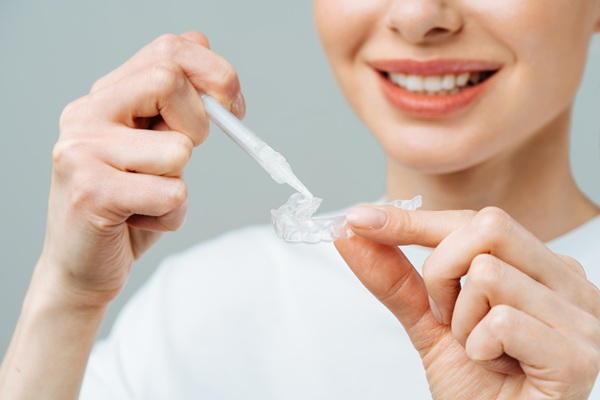 Are your dentures too loose, too tight, or generally uncomfortable? Then, it may be time to have them relined and refitted. Through repairing one’s dentures, a dentist can help ensure they are comfortable to wear and working as intended. This article will explore the basics of denture repair, helping you determine which repairs you may need and when.
Are your dentures too loose, too tight, or generally uncomfortable? Then, it may be time to have them relined and refitted. Through repairing one’s dentures, a dentist can help ensure they are comfortable to wear and working as intended. This article will explore the basics of denture repair, helping you determine which repairs you may need and when.
How to repair dentures
When dentists repair dentures, they refit them to the patient’s mouth. To do so, they add various types of material to the part of the denture that fits over the gum line (the denture plate). This process is known as “relining.” Which material or resin they use will depend on whether they are doing a soft or hard reline. Take a closer look at these different denture repairs below.
Soft relining
Soft relines use waxy silicone resin. Known for its comfort, soft relining resin is often recommended for patients with sensitive gums or thin gum lines. Although not as durable as hard relines, soft relines should last between one and two years. They remain effective in repairing dentures for older patients and take a single visit to complete.
Hard relining
Hard relines are the traditional denture repair, utilizing acrylic resin to refit dentures. This hard relining resin contains materials similar to those used in the rest of the denture. As such, hard relines are known to be highly durable and may last up to five years.
However, a hard reline may need two appointments to complete. The dentist may have part of the reline done in a dental lab, so the patient must return to pick up the dentures. The dentist will ensure the relined dentures fit properly at the second appointment. Keep in mind that this means the patient would need to go without the dentures for a few days between appointments.
When to get dentures relined
Dentures may need to be repaired every one to five years, depending on the last type of repair received. If the patient has never had their dentures repaired, there are some signs to look out for that indicate it might be time for a relining:
- Strange or unpleasant odors.
- Gum irritation or sores.
- Cracks or chips in the dentures.
- Warped dentures, such as from boiling dentures.
- Changes in facial structure, especially in the jawline.
- Trouble eating or talking because the dentures keep slipping.
Consult a dentist if any of these signs or symptoms arise, even if one has had their dentures relined recently. Wearing ill-fitting dentures is not recommended, as it could lead to a host of other health issues. Some examples include ulcers, jawbone loss, altered appearance in the cheeks, tissue overgrowth, and infections.
Call for more information
Put your health and comfort first. If your dentures have become uncomfortable, keep slipping, or you have noticed the signs of ill-fitting dentures, consult our dentist at Dental Partners Brookhaven. We can provide soft relines, hard relines, and even replacement dentures if needed.
Request an appointment or call Dental Partners Brookhaven at 901-562-0510 for an appointment in our Memphis office.
Related Posts
General dentists recommend adding flossing to your oral hygiene routine once a day. This important practice removes plaque and food debris that brushing alone cannot reach. While string floss is an effective way to clean between your teeth, several alternative methods can make the cleaning process more comfortable and efficient.Flossing is an essential part of…
Dental fillings are one of the most common ways that cavities are treated by dentists. For cavities that are mild to moderate, dental fillings are the most appropriate route to take. Additionally, it is one of the most straightforward procedures to perform. With that, it is helpful to have an understanding of what goes on…
Considering at-home teeth whitening? Many individuals experience a desire to whiten their teeth to rid them of stains. Whether it be at home or via a dental office, teeth whitening can make a significant difference when it comes to brightening one's smile.However, not everyone is in a position to undergo professional teeth whitening at a…


